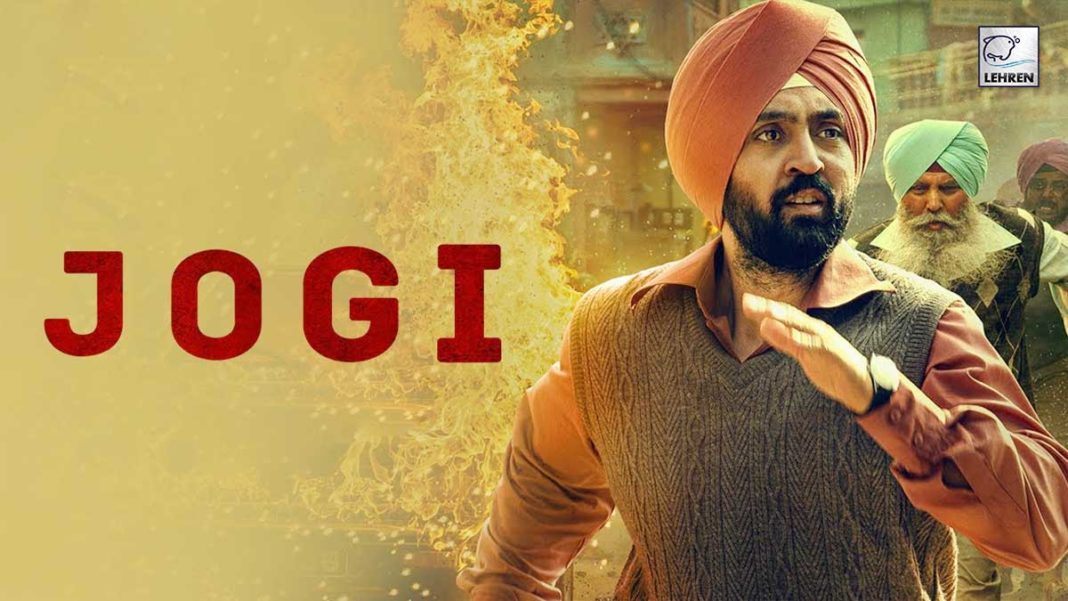The rawness of 1984 is still dark, deep, and hurtful.
Director Ali Abbas Zafar who co-writes with Sukhmani Sadana, adds to the library of cinematic takes on the anti-Sikh riots unleashed in the capital in the aftermath of Indira Gandhi’s assassination.
The facts are already out there. Minutes after the Prime Minister was shot down by two of her Sikh security guards, orders “from the top” instructed the cops to turn a deaf ear as mayhem and murder mercilessly targeted the community. In fact, Ali Abbas zeroes in on the Delhi Police as the main active perpetrators with the ‘reward’ of, “Rs 1,000 for every Sikh killed, 5,000 if it’s a renowned Sikh,” announced inside a police station.
Using the Titanic formula of a fictional story set against the backdrop of an authentic tragedy, Ali Abbas writes a tale of friendship that transcends the hate that reigned against the Sikhs in Delhi. He microscopes the politically engineered genocide by revolving his story around five main characters.
Representing the wickedness of the pogrom is one main villain, the ruthlessly ambitious Tejpal Arora (Kumud Mishra), an obnoxious Municipal Councillor out to please his party higher-ups. While people and house are doused in petrol and kerosene and set on fire, Tejpal feasts on mutton biryani like a classic Nero.
Battling to keep the turbaned flock alive are three friends from three different communities who stand by the victimised community, whatever the cost. Joginder/Jogi (Diljit Dosanjh) who must save his nearest and dearest in Gully No 6, his neighbourhood, Inspector Rawinder Chautala (Mohammed Zeeshan Ayub) from the Delhi Police who can’t believe Tejpal’s orders to put an ‘S’ against every Sikh on the voters’ list before systemically wiping them out, and Kaleem Ansari (Paresh Pahuja) who opens his kitchen, his truck and the dargah to rescue the hounded.
The fifth is Lali Katiyal (Hiten Tejwani), also from the Delhi Police, who fuels Tejpal’s mission of hatred for reasons of his own.
The backlash to Mrs. Gandhi’s death is stark and sudden. The paratha-eating bonhomie of Jogi’s family is busted and, for a slice of cinematic drama, a birthday party was in store on the day that tragedy struck.
It’s a cat and mouse game of survival as Rawinder and Kaleem join forces to save Jogi’s large, extended family with the bloody politics gradually narrowing into a personal Tejpal versus Gully No 6 with much help from Lali who obviously has a past equation with the three friends.
Well shot by Marcin Laskawiec, the escape to safe haven Mohali has its expected nail-biting
moments especially with an infant hidden amongst the first batch of Sikhs that’s ferried out of Delhi. Those who’ve been left behind must be saved too which comes with its own tensions.
Poignant moments are those that Sikhs would understand with much feeling as a turban must be removed and hair must be cut to save the group. It is, as Jogi’s mother puts it, the ultimate sacrifice of a Sikh, compounded when his kada too must be discarded to escape notice. Ali Abbas films it with a tear in the eye and flashbacks to happier times when a young Sikh proudly wears his turban for the first time.
Also moving is the time an elder urges Jogi and Rawinder to do what they have to, adding that we’re used to rising from the ashes. Ali Abbas also makes lavish use of background songs for every emotional moment.
While hatred and retribution (action-reaction, as the heartless famously put it) triggered by the PM’s assassination is activated on a venomous political level, a more personal story behind Lali’s thirst for revenge comes in a flashback. This is a little flimsy and filmi as the reasons for his animosity even in the past aren’t too convincing.
Ali Abbas’ retelling of the 1984 violence is familiar to those who’ve watched it many a time on celluloid. What makes it different is the spirit of friendship that is the only hope in a turbulent atmosphere.
Diljit Dosanjh and Mohammed Zeeshan Ayub elevate the film with the intensity of their
performances, moments of frustration and despair driving Jogi to occasionally spar with his friend.
For humanity in general and Sikhs in particular, it is another revisit to an old wound that can’t heal in a hurry.
Watch Jogi Trailer:
Also Read: Review | Middle Class Love – Yatichu, It’s Quite Cool, Actually

